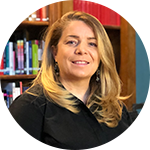ERASMUS+
ENSAIT’s Commitment to Erasmus+
ENSAIT has always made internationalization a priority and is strongly committed to continuing its ongoing efforts, such as close and individualized support for students and ensuring that 100% of its students undertake an experience abroad.
All students take part in a mobility program lasting more than three months, whether it is academic (semesters, double degrees, joint degrees) or industrial (internships or final-year projects).
Every student preparing for departure receives support from the International Relations Office for both administrative and logistical matters.
Each incoming or outgoing student is mentored and guided by an ENSAIT academic tutor, who supports them academically, helps with course selection, and signs their learning agreement jointly with the Academic Affairs Office.
ENSAIT aims to continue all the above-mentioned actions and to implement new ones.
Originally focused on textile specialization, we are now seeking to broaden the fields of expertise of our partner universities in order to offer our students complementary specializations (compatible with textiles), and likewise for incoming international students.
Due to the globalization of the textile industry, international education and overseas experiences are essential for our future engineers.
ENSAIT has signed around forty bilateral agreements and about ten double-degree agreements.
Our partnerships are primarily with institutions in the Northern Hemisphere and Western Europe, but we are increasingly engaging with partners in the Global South (South Africa, India, Peru, Brazil) and East (Russia, Romania…), for linguistic, cultural, scientific, and economic reasons.
With its strong experience in student mobility, ENSAIT is now turning its attention to scientific mobility and that of its administrative and technical staff.
To enhance the European and international visibility of its laboratory and to promote scientific excellence, it is essential to now develop mobility at the doctoral and post-doctoral levels.
To achieve this, several actions will be undertaken:
- Increase the number of joint PhD programs. Agreements already exist with partner universities (currently four: China, Poland, Romania, Serbia), and such cooperation should be encouraged.
- Promote doctoral and post-doctoral exchanges through research internships.
The Erasmus Mundus SMDTex program – Sustainable Management and Design for Textiles, composed of four European universities and one Chinese university, is a key step in this mobility effort. Eight PhD students per year will study at two European universities and the Chinese university, with each doctoral cycle lasting four years.
ENSAIT also aims to encourage its staff to participate in European mobility. A plan is being developed in collaboration with the Human Resources Director and the school’s management.
Additionally, in collaboration with Italian, Finnish, and Russian university partners, ENSAIT has submitted a TEMPUS project proposal, which would allow staff to engage in exchanges aligned with their skills and activities.
Currently, 15% of ENSAIT’s graduating engineers work abroad. Our other academic programs also contribute to this international reach. Therefore, it is essential for ENSAIT to continue developing a strong and high-quality international policy, implemented by all staff members (faculty, administrative, and technical), who are themselves trained in international affairs.
International conferences and European research programs (7th Framework Programme, Erasmus Mundus, Interreg, ERDF…) contribute to enhancing the expertise of our faculty and researchers, which is then passed on to teaching.
Thanks to our Technology Transfer Office (SAIC), scientific improvements from research programs can quickly be transferred to the industrial sector.
To strengthen this policy, ENSAIT has developed numerous regional partnerships with competitiveness clusters (UPTEX, PICOM, TECHTERA…), professional associations (CLUBTEX, Union of Textile Industries…), and technical/research centers (European Centre for Innovative Textiles, French Institute of Textile and Apparel…).
Our transfer unit allows us, through a commercial strategy, to generate the financial resources necessary to support a high-quality scientific policy.
This, in turn, gives us the flexibility to allocate additional resources to the training of our graduates and, for example, to finance the travel of all our students and staff to the ITMA textile trade fair, held every four years in a European country.
Naturally, ENSAIT also strengthens its international partnerships through active participation in international associations such as AUTEX (Association of European Textile Universities) and through the organization of scientific and industrial conferences such as ITMC (Intelligent Textiles and Mass Customisation), SFGP (French Society for Process Engineering), and ALTEX as part of the European AsialinK project.
Erasmus+ Grant
The grant amounts are for informational purposes only.
Erasmus+ grants are awarded to students subject to the availability of funds received from the European Commission.
For the academic year 2024/2025, the monthly amounts (one month = 30 days) are as follows :
| Groupe | Pays de destination | Mobilité d'études | Mobilité de stages |
|---|---|---|---|
| 1 | 1 Germany, Austria, Belgium, Denmark, Finland, France, Ireland, Iceland, Italy, Liechtenstein, Luxembourg, Norway, Netherlands, Sweden. | €292 | €442 |
| 2 | 2 Bulgaria, Cyprus, Croatia, Spain, Estonia, Greece, Hungary, Latvia, Lithuania, North Macedonia, Malta, Poland, Portugal, Romania, Serbia, Slovakia, Slovenia, Czechia, Turkey. | €225 | €375 |
Support for Students with Disabilities
Les étudiants en situation de handicap peuvent bénéficier d’une aide financière et logistique supplémentaire. Pour plus d’informations, veuillez contacter le service des Relations Internationales.
Payment
The Erasmus+ grant is paid in two instalments:
- 1st payment: 70% of the total planned amount (based on the estimated duration of your stay) is paid after the scholarship allocation committee meeting.
- 2nd payment (the remaining balance, which is not necessarily 30%): the remaining 30% is calculated on a pro-rata basis according to the actual number of days abroad at the end of the exchange period.
The actual dates indicated on the certificate of attendance are used to calculate the effective mobility duration.
To simplify Erasmus+ grant applications, you can either go directly to the platform https://info.erasmusplus.fr/ or contact the dedicated helpline at +33 (0)5 56 00 94 00, which will assist you in preparing your Erasmus+ grant application for your stay abroad.
Your contact

Marie-Pierre DELESPIERRE
Director of International Relations
marie-pierre.delespierre(at)ensait.fr
(+33)03 20 25 64 87
